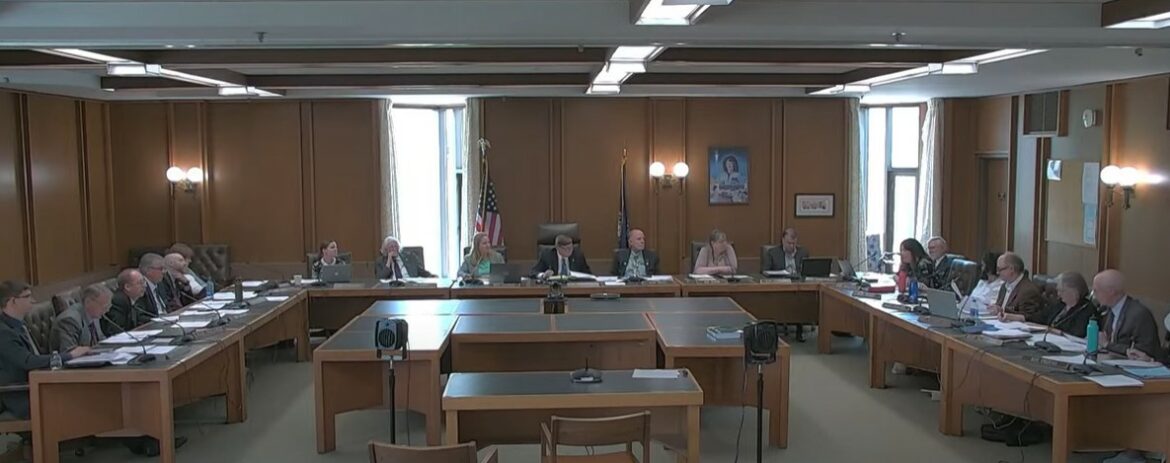By PAULA TRACY, InDepthNH.org
CONCORD – There will be no committee recommendation to the House on the length of time for extending the Granite Advantage expanded Medicaid Program.
Half the House Health Human Services and Elder Affairs Committee voted that it should become permanent while the other half voted to extend it for two years Wednesday, in alignment with the proposed budget.
The 10-10 vote on Senate Bill 263 will mean it will likely go to a floor vote of the full House next week.
Healthcare, business and elder affairs leaders across the state spoke strongly in favor of a permanent expanded Medicaid program without a sunset on Tuesday.
They said it will save the state money rather than a two-year extension and help with better health outcomes for residents.
Since its inception in 2014, the program has provided insurance coverage for one in five residents of modest means and is set to expire at the end of its second, four-year term in 2024.
About 90 percent of the cost of the program comes from the federal government, with $530 million projected in 2023.
A copy of the bill is here https://www.gencourt.state.nh.us/bill_status/billinfo.aspx?id=894&inflect=2
None of the 20 members of the committee spoke in opposition to the program but some expressed concern that making it permanent would be problematic.
Rep. Erica Layon, R-Derry, vice chair said there is strong bipartisan support to extend the sunset date two years and reestablish a commission to evaluate and make all necessary changes.
“We need to pass this bill now. There are people who need our help today,” she said.
She noted it would be in alignment with what is already in the House version of the budget, House Bill 2.
Rep. Lucy Weber, D-Walpole, said the HB 2 state budget is a gigantic document that contains many compromises.
She noted all who testified at a hearing on the bill except one urged making the program permanent.
“It is already working,” she said and extending it two years really hampers any discussion on how the program is put out to bid, with savings coming to a halt.
Health and Human Services officials said the state could expect to pay at least 10 percent more for a short-term, two-year contract.
“I would like it to be made permanent,” Weber said.
State Rep. Mark McLean, R-Manchester, said for the sake of the 33 who did testify, “we need to renew the Medicaid expansion” but he was concerned with the sustainability of the program “replacing it with poorly compensated care” and “down the road, our small hospitals could be in real trouble. It’s a tourniquet to stop the bleeding but not the final fix.”
State Rep. William Palmer, D-Cornish, said he heard from Henry Lipman, who heads up the state’s Medicaid program that a two-year contract might be more expensive.
“Will we be spending more than we need to?” he asked.
A short-term reauthorization which may be being considered in the House as an option would fail to provide the stability and security that families, health care providers, and insurers need, advocates said.
Americans for Prosperity oppose the continuation of the program with some saying the program should at least require those receiving it to work. The present program does not have a work requirement.
The state’s Business and Industry Association, the NH Hospital Association, the AARP of New Hampshire, and various chamber organizations favor permanent reauthorization with no sunset date.
Correction: An earlier version of this story incorrectly attributed comments from Rep. Mark McLean, R-Manchester, to Rep. James MacKay, D-Concord.






